Pompeo arrived Sunday afternoon in Israel, where he was meeting Prime Minister Benjamin Netanyahu, after a stop in Saudi Arabia. Both countries are fierce rivals of Iran, and have welcomed the Trump administration’s hard line toward the Tehran government.
“Iran destabilizes this entire region,” Pompeo said in brief remarks to journalists with Saudi Foreign Minister Adel al-Jubeir, taking no questions, before flying to Tel Aviv.
Ahead of their meeting, Netanyahu called Pompeo a “true friend” of Israel and said their talks would focus on Iran’s “growing aggression” in the region and the international nuclear deal with Iran. President Donald Trump is set to decide by May 12 whether to remain in the deal.
Israel considers archenemy Iran to be its greatest threat, citing Iran’s support for militant groups, its hostile rhetoric and its development of long-range missiles.
Israel has been an outspoken critic of the 2015 nuclear deal, saying it does not do enough to prevent Iran from developing a nuclear-weapons capability. It has urged the international community to revise the deal or scrap it altogether.
Israel has also expressed growing concerns about Iran’s involvement in the civil war in neighboring Syria. It says it will not allow Iran to establish a permanent presence in Syria, fearing the Iranians will launch attacks from close proximity.
In Saudi Arabia, Pompeo urged the Saudis and their neighbors to resolve a festering dispute with Qatar that U.S. officials say Iran is exploiting to boost its influence in the region, including in Yemen and Syria.
Pompeo on Sunday met with Saudi King Salman, whose country, along with Bahrain, Egypt and the United Arab Emirates, is embroiled in a row with Qatar that had hobbled Gulf Arab unity and frustrated the U.S. as it seeks to blunt growing Iranian assertiveness.
“I think they would all agree that it’s in everyone’s best interests that the Gulf states all figure out how to be together,” Pompeo told reporters as he traveled to Israel. “We’ve got a common challenge in Iran I think they all recognize that. We’re hopeful that they will in their own way figure out their dispute between them.”
The ex-CIA chief arrived in Riyadh a day earlier, shortly after Iranian-backed Houthi rebels in Yemen fired missiles at Saudi Arabia’s southern city of Jizan, killing one person and underscoring what U.S. officials said is a growing threat emanating from Iran.
Senior U.S. officials traveling with Pompeo blamed Iran for smuggling the missiles into Yemen. They said the incident highlighted the importance of the Trump administration’s push to counter Iran in the region. Iran has also provided crucial support to Syrian President Bashar Assad.
Al-Jubeir said the kingdom “supports the policy of the Trump administration against Iran and to improve the terms of the nuclear agreement with Iran.”
Mediation efforts led by Kuwait and supported by the U.S., including former Secretary of State Rex Tillerson, who Trump fired last month, have proven unsuccessful.
Pompeo’s meetings in Saudi Arabia and Israel, to be followed by discussions in Jordan, come just weeks ahead of several key dates that could bring further volatility to the region.
Trump has set a May 12 deadline to decide whether to pull out of the Iran nuclear deal, something he appears likely to do despite heavy pressure to stay in from European and other parties.
Two days later, the U.S. plans to open its new embassy in Jerusalem. That will mark a significant shift in decades of American policy toward Israel and the Palestinians, who also claim the Israeli-annexed eastern part of the holy city as their capital.
The embassy move is deeply opposed by the Palestinians, who on May 15 will mark the anniversary of what they term the “nakba,” or catastrophe, when hundreds of thousands of Palestinians fled or were driven from their homes during the 1948 war that attended Israel’s creation.
Dozens of Palestinians have been killed by Israeli fire during recent violent protests along border between Israel and Gaza. Those protests, spearheaded by the Islamic militant Hamas movement, are expected to peak on May 14.
On Friday at a NATO foreign ministers meeting in Brussels, the first stop on his trip, Pompeo repeated Trump’s pledge to withdraw from the Iran deal unless it is significantly strengthened. He said the U.S. was “unlikely” to stay in if that was not done.
Also looming over the trip is uncertainty over Trump’s policy on Syria, which has shifted between a speedy all-out withdrawal of American forces and leaving a lasting footprint to deter Iran from completing a land bridge from Tehran to Beirut.
Pompeo also is taking a leading role in Trump’s preparations for an expected summit in May or early June with North Korean leader Kim Jong Un. Pompeo, while en route to Israel, was asked whether a U.S. withdrawal from the Iran nuclear deal would complicate negotiations
“I don’t think Kim Jung Un is staring at the Iran deal and saying, ‘Oh goodness, if they get out of that deal, I won’t talk to the Americans anymore. There are higher priorities, things he is more concerned about than whether the Americans stay” in the accord, Pompeo said.
___
Associated Press writer Josef Federman in Benjamin contributed to this report.





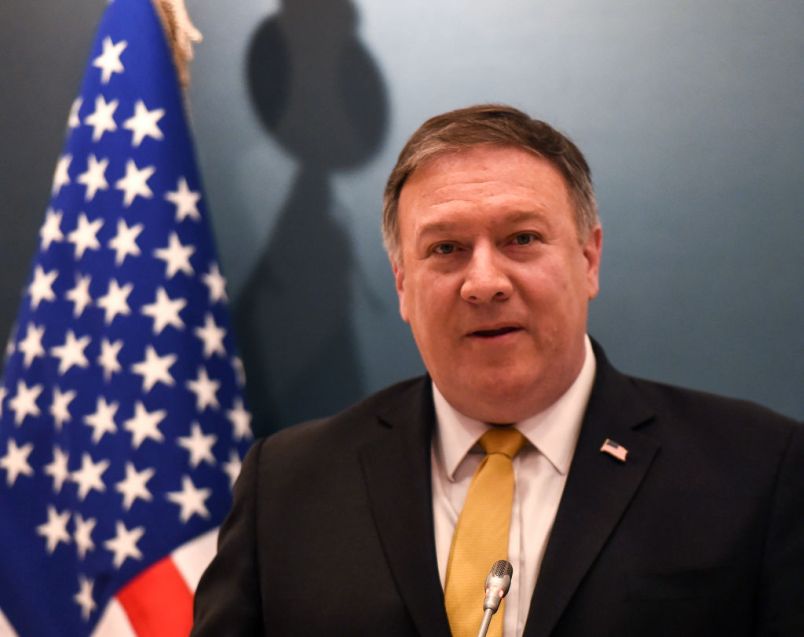
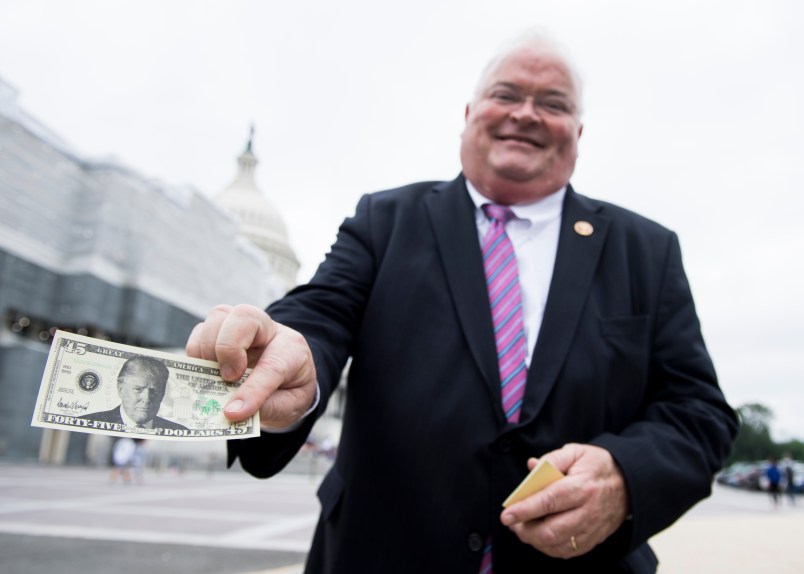
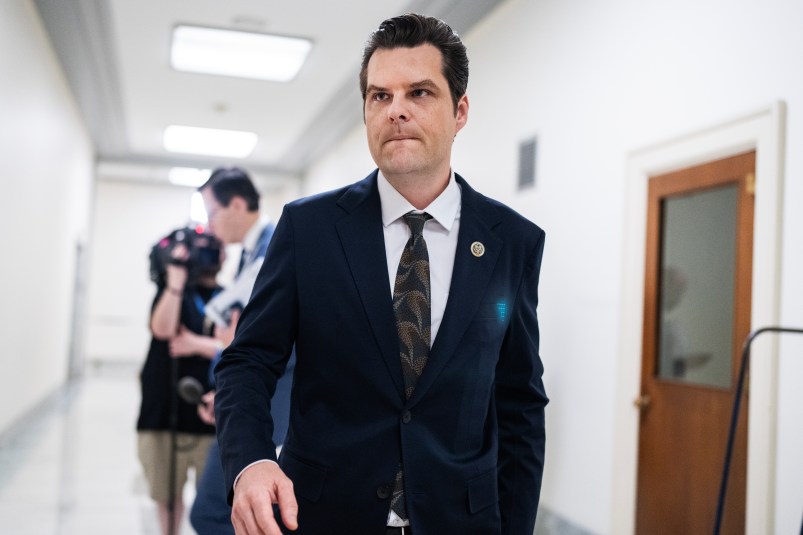
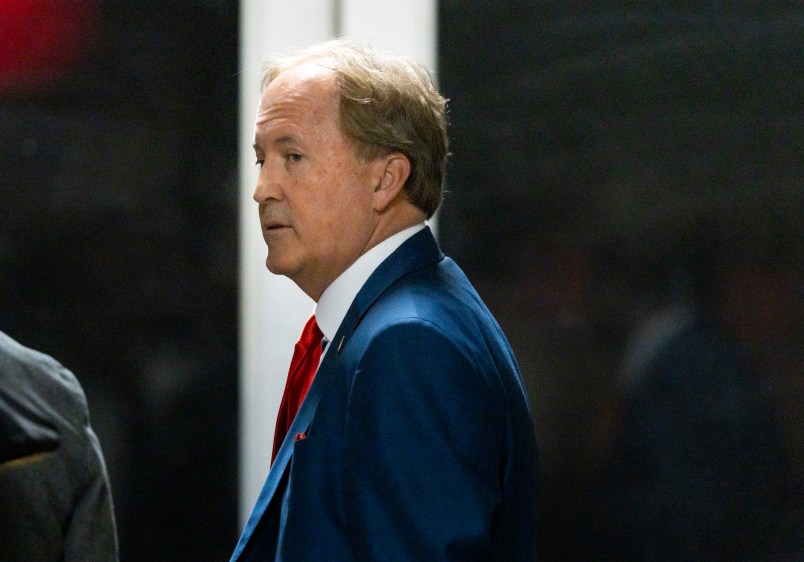
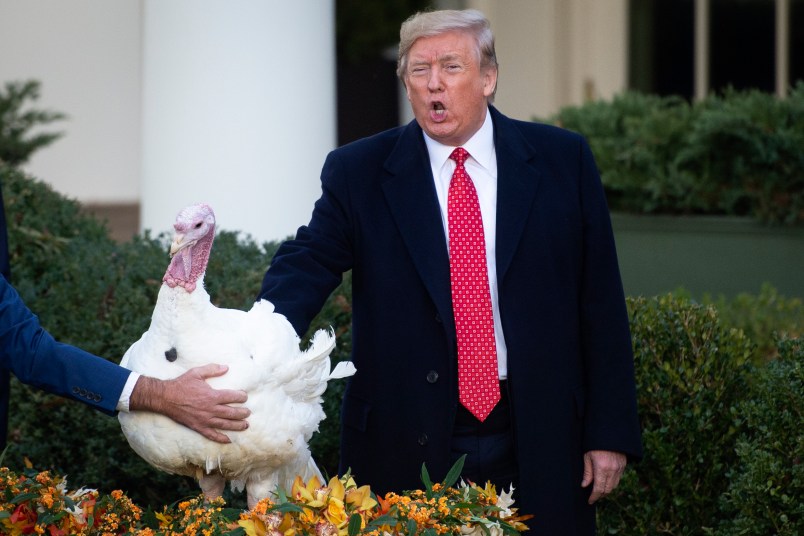
I am so glad he is getting input from both sides of the Iran issue : the side that wants us to turn every suspected, potential, and real military-related site into rubble yesterday; and the side that wants American military forces to choke off Iranian oil exports, wait for the severe economic crisis, and then invade so a proper Sunni government can be put in place.
Ya know, if we stop supporting Israel, almost all of our foreign policy problems go away.
Can’t think of one fucking thing Israel has done for us.
Where else would he go? Surprised he didn’t bring Bolton with him.
Along with this year’s $3 billion check, I presume.
Oh wait, since they’re moving the US embassy there, it’s probably more for, you know, security costs.
“No Israel, know peace,” eh? The Arabs have been pulling that BS since 1948.